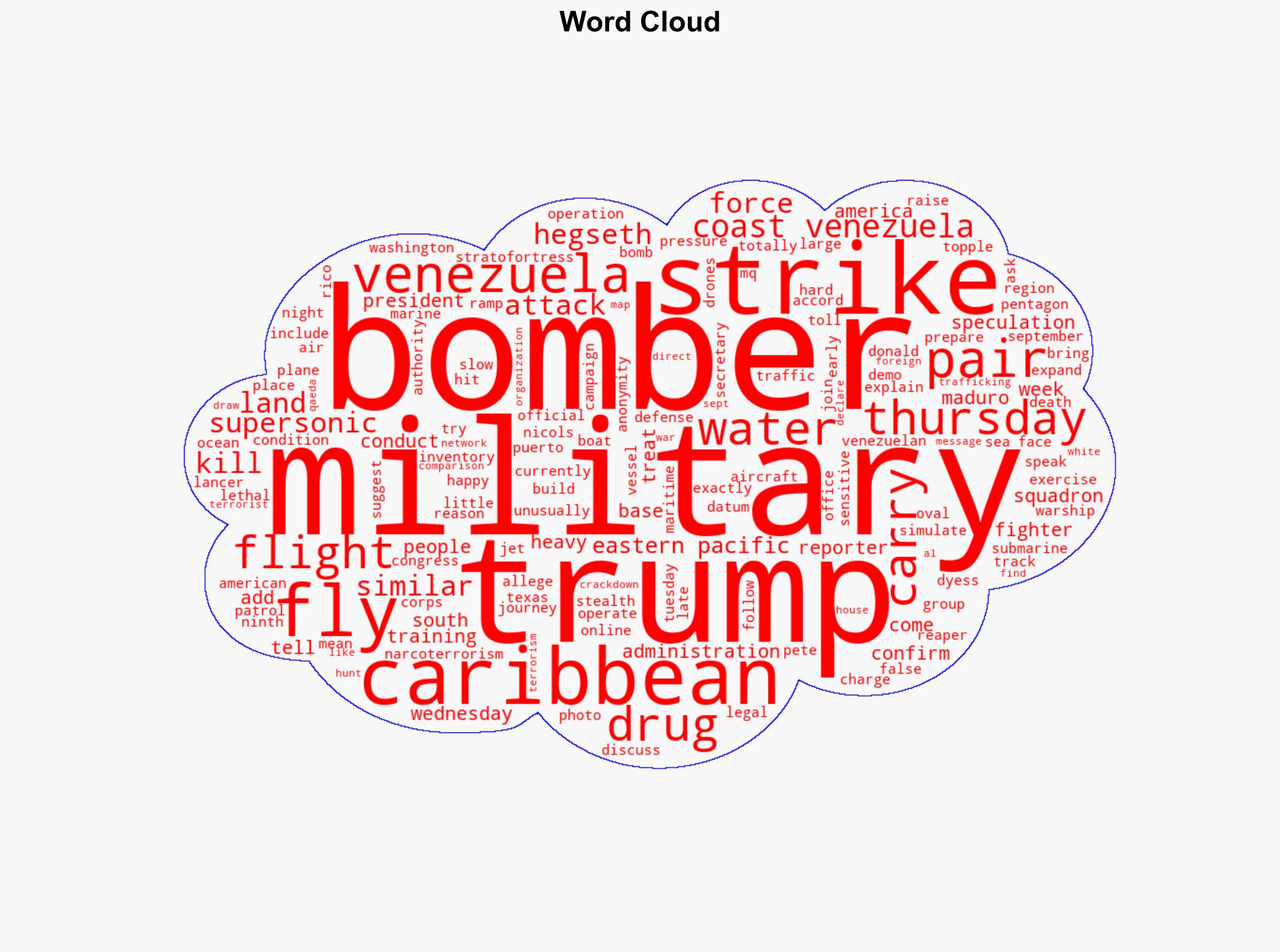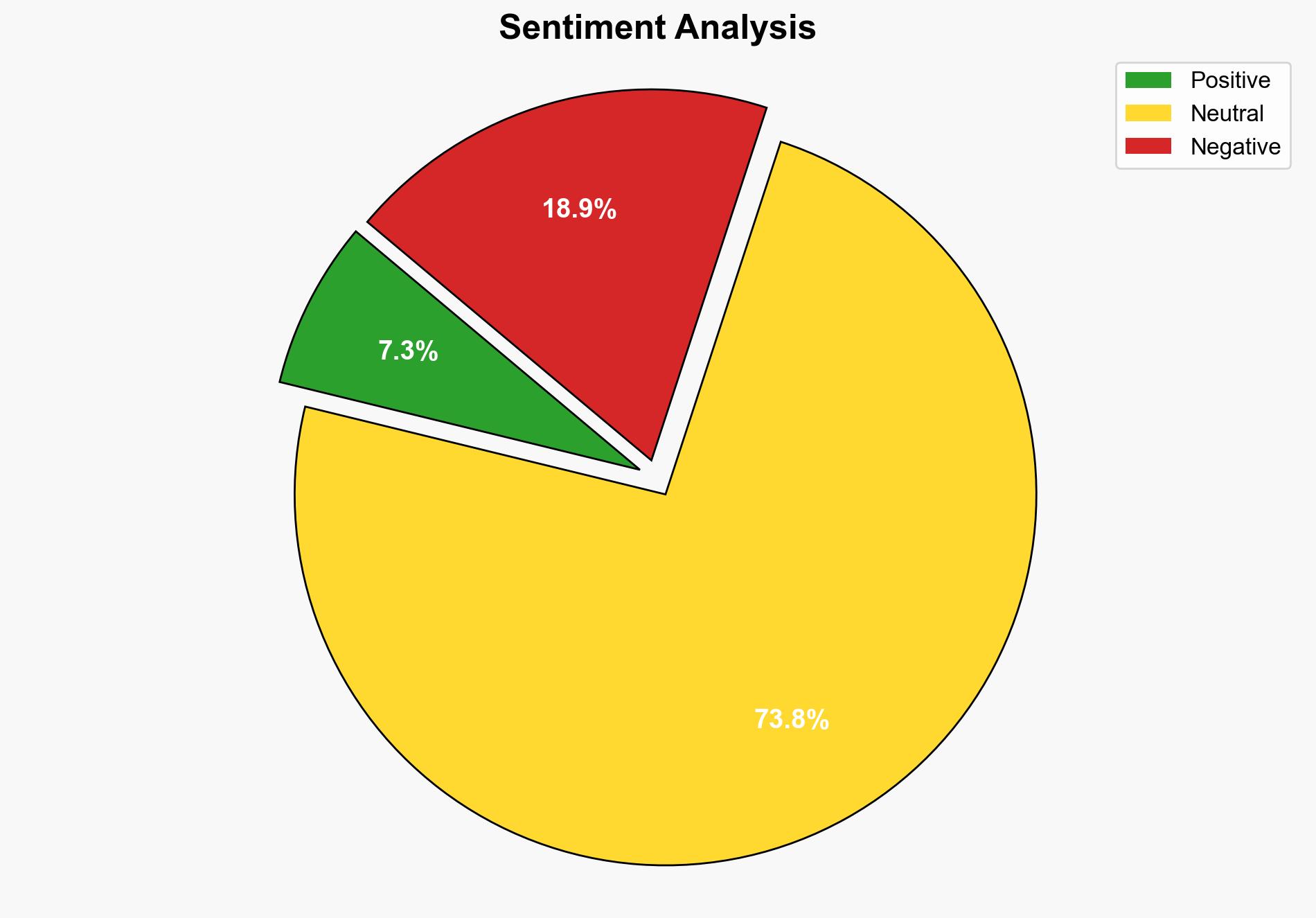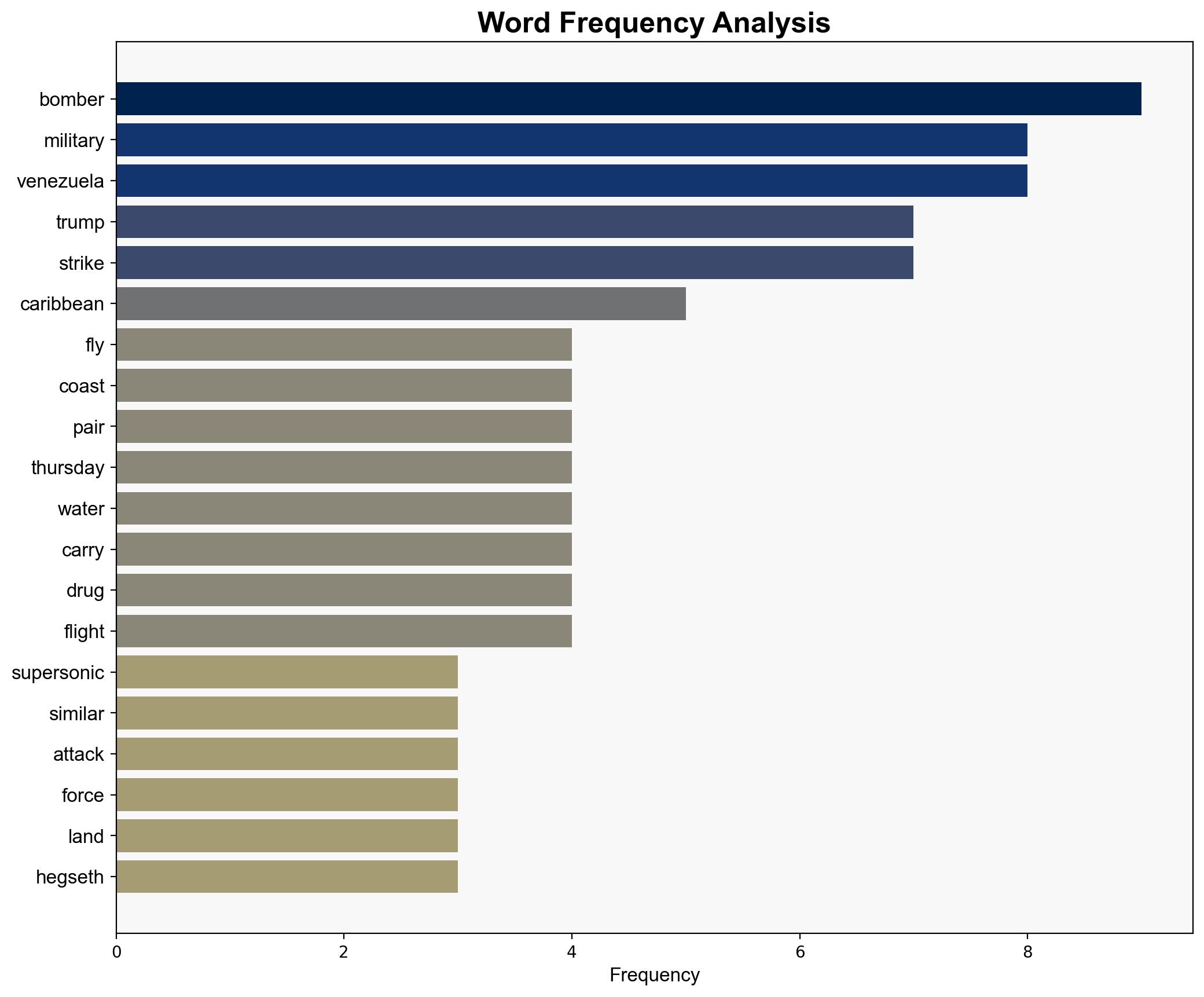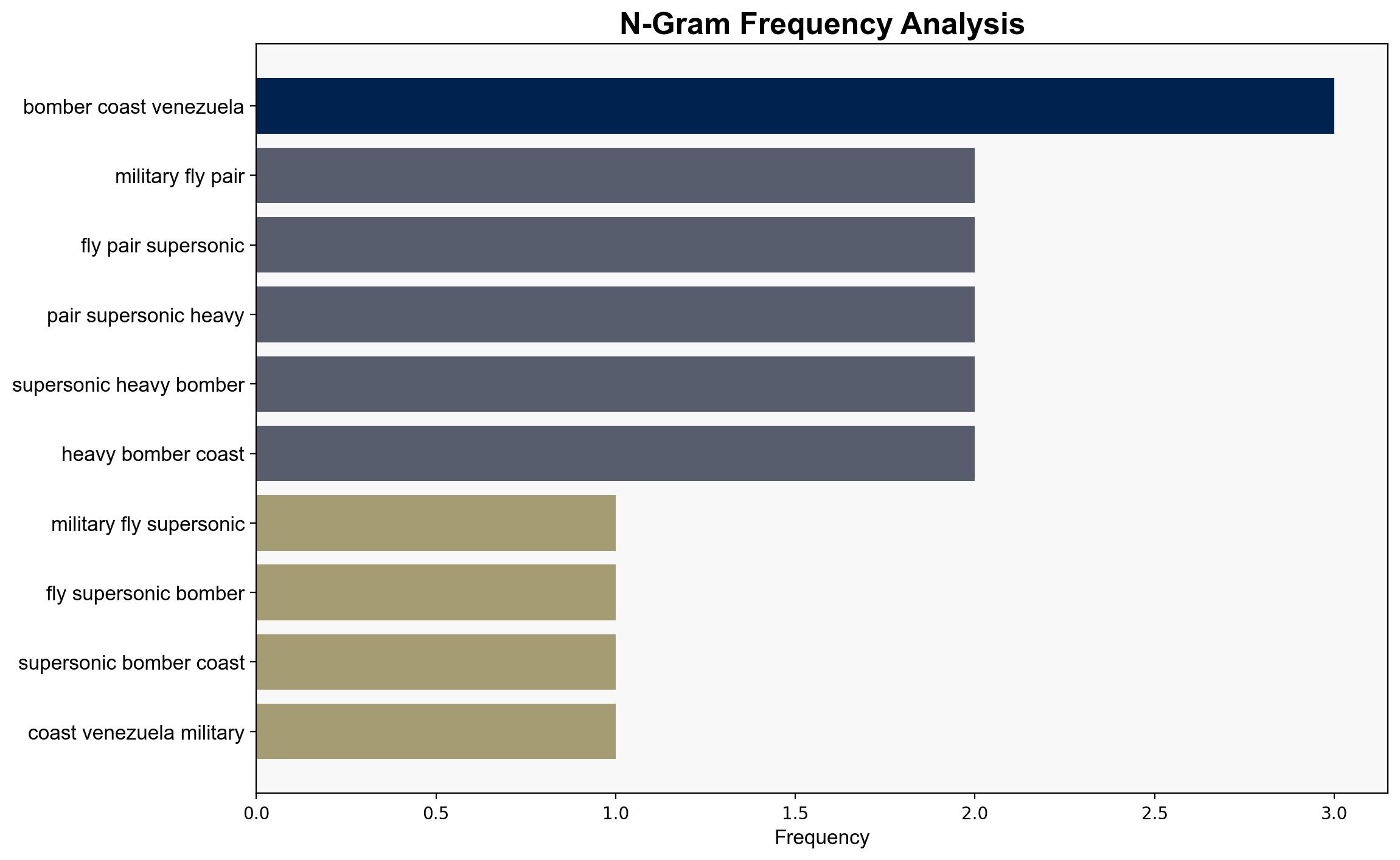US military flew supersonic B-1 bombers up to the coast of Venezuela – ABC News
Published on: 2025-10-24
Intelligence Report: US military flew supersonic B-1 bombers up to the coast of Venezuela – ABC News
1. BLUF (Bottom Line Up Front)
The most supported hypothesis is that the US military’s deployment of B-1 bombers near Venezuela is a strategic demonstration of power aimed at deterring narcoterrorism and reinforcing US influence in the region. Confidence level: Moderate. Recommended action: Enhance diplomatic channels to clarify intentions and reduce regional tensions.
2. Competing Hypotheses
Hypothesis 1: The deployment is primarily a military exercise aimed at counter-narcoterrorism operations, demonstrating US capability and readiness to act against drug trafficking networks in the Caribbean.
Hypothesis 2: The deployment is a strategic maneuver to exert political pressure on Venezuela, potentially as a precursor to more aggressive actions aimed at destabilizing Nicolás Maduro’s regime.
Using ACH 2.0, Hypothesis 1 is better supported by the context of ongoing US military operations targeting drug trafficking in the region, as well as public statements linking these activities to counter-narcoterrorism efforts. Hypothesis 2 lacks direct evidence linking the bomber flights to regime change intentions.
3. Key Assumptions and Red Flags
Key assumptions include the belief that military exercises are a standard deterrence strategy and that the US has no immediate plans for regime change. Red flags include the lack of explicit communication from the US government about the objectives of the flights, which could lead to misinterpretation by regional actors. The anonymity of sources discussing sensitive operations could indicate either operational security or an attempt to obscure true intentions.
4. Implications and Strategic Risks
The deployment could escalate tensions with Venezuela, potentially provoking a military response or increasing anti-US sentiment in the region. There is a risk of miscalculation leading to unintended conflict. Economically, increased military presence could disrupt regional trade routes. Geopolitically, it may strain US relations with countries sympathetic to Venezuela.
5. Recommendations and Outlook
- Enhance diplomatic engagement with regional allies to clarify US intentions and reduce the risk of escalation.
- Monitor Venezuelan military movements and communications for signs of heightened alert or retaliatory planning.
- Scenario-based projections:
- Best Case: US actions deter narcoterrorism without escalating tensions, leading to improved regional security.
- Worst Case: Misinterpretation of US actions leads to military confrontation or increased anti-US alliances.
- Most Likely: Continued military presence maintains pressure on drug trafficking networks with limited diplomatic fallout.
6. Key Individuals and Entities
Nicolás Maduro, Donald Trump, Pete Hegseth
7. Thematic Tags
national security threats, military strategy, counter-narcoterrorism, regional stability





